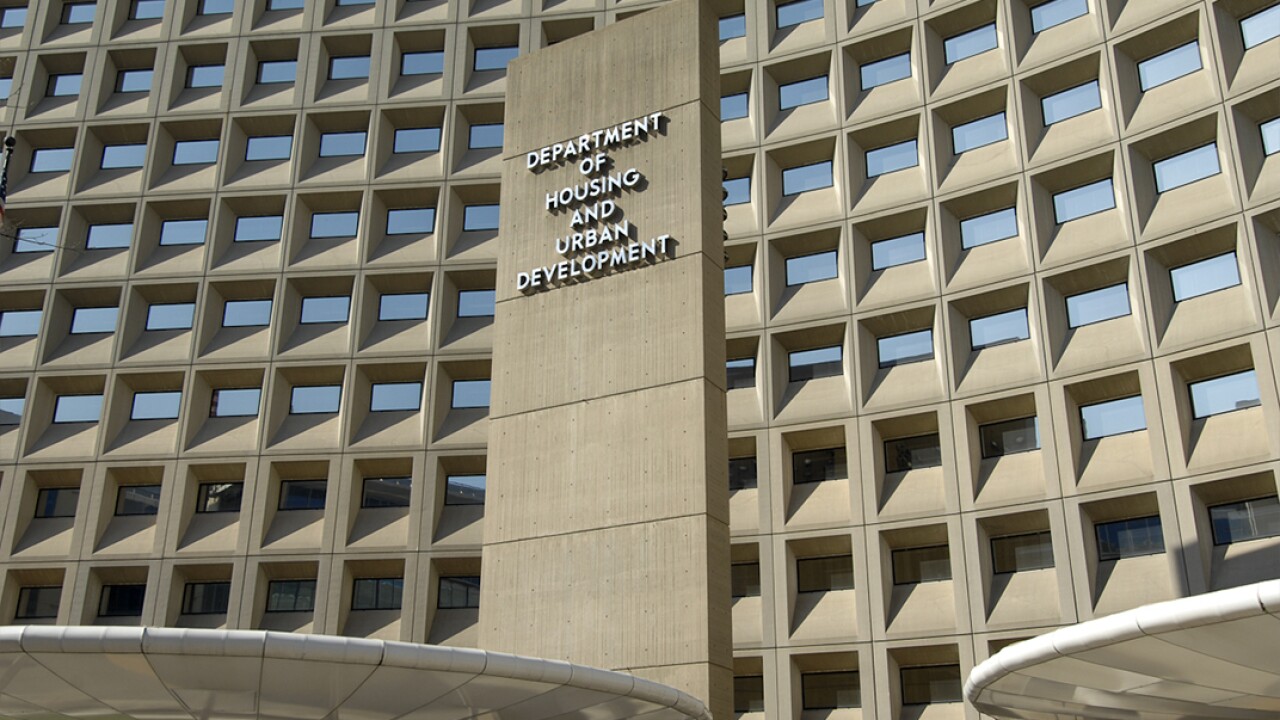The Justice Department told a federal appeals court on Friday that President Trump should have the authority to fire the head of the Consumer Financial Protection Bureau, but stopped short of asking for the bureau to be abolished.
As expected after the presidential election last year, the Justice Department under Attorney General Jeff Sessions sided with PHH Corp., a nonbank mortgage lender and servicer, against the CFPB over the agency's 2014 enforcement action against the firm.
In a 33-page brief, the Justice Department argued that the president should be able to remove a single agency head, which was "meaningfully different" from a multimember commission.

"Limitations on the president’s authority to remove a single agency head are a recent development to which the executive branch has consistently objected," the Justice Department's brief said. "Under the Constitution and Supreme Court precedent, the general rule is that the president must have authority to remove executive branch agency heads at will."
Though a three-judge panel of the U.S. Court of Appeals for the D.C. Circuit ruled in October that the CFPB's single-director structure was unconstitutional, the Justice Department still agreed that the proper remedy to the constitutional issue is striking language in the Dodd-Frank Act that says the director can only be removed "for cause."
If the language is removed, it would effectively allow the president to dismiss the head of the agency at will.
"In our view, the panel correctly applied severability principles and therefore properly struck down only the for-cause removal restrictions," the brief said. "Because a single agency head is unchecked by the constraints of group decision-making among members appointed by different presidents, there is a greater risk that an 'independent' agency headed by a single person will engage in extreme departures from the president’s executive policy."
The case represents the first serious constitutional challenge to the bureau's structure and could ultimately be decided by the Supreme Court.
Last month, the D.C. Circuit scrapped the panel's earlier ruling and agreed to hear the CFPB's appeal on an "en banc" basis before a 10-judge panel. The CFPB had argued that a rehearing of the full D.C. Circuit was necessary to decide what it called "the most important separation of powers case in a generation." Oral arguments are set for May 24.
The case is being watched closely, in part, because Republicans have been urging President Trump to fire Cordray since inauguration day. The ongoing litigation has kept Cordray in his job for now because the case goes to the heart of whether the president has the authority to fire the head of an independent agency.
In its brief, the Justice Department urged the appeals court to look beyond the Supreme Court precedent in a 1935 case known as Humphrey’s Executor, which held that the president could not fire a member of the Federal Trade Commission for political reasons.
"The principal constitutional question in this case is whether the exception to the president’s removal authority recognized in Humphrey’s Executor should be extended by this court beyond multi-member regulatory commissions to an agency headed by a single director," the brief said. "While we do not agree with all of the reasoning in the panel’s opinion, the United States agrees with the panel’s conclusion that single headed agencies are meaningfully different from the type of multi-member regulatory commission addressed in Humphrey’s Executor."
The Justice Department added that "Humphrey’s Executor should not be extended to the CFPB. The principles animating the exception in Humphrey’s Executor do not apply when Congress carves off a portion of that quintessentially executive power and vests it in a single principal officer below the president who is not subject to the president’s control."
The Justice Department also addressed an issue that the appeals court raised in agreeing to hear the CFPB's appeal in the case. The appeals court had asked whether agencies can appoint their own administrative law judges or whether they should be appointed by the president. The court had asked whether a finding against administrative law judges nullified to make any other rulings. But Justice said it should rule on the issue of structure regardless.
"If the court concludes that these administrative law judges are not officers, its holding will not affect the court’s treatment of the other issues in this case," the Justice Department said.
The Justice Department's brief against the CFPB was not a surprise. In a
The case has attracted the attention of dozens of trade groups, representing thousands of consumer finance professionals, that have filed amicus briefs in support of PHH.
The briefs broadly conform to three major criticisms: that the CFPB's structure is an unconstitutional delegation of legislative authority to a single individual; that an independent director who cannot be removed by the president is insulated from oversight; and that the CFPB's funding mechanism through the Federal Reserve makes the agency unaccountable.
"No other executive agency is so insulated from democratic accountability," wrote Brian Melendez, a managing partner at Dykema Gossett, representing the Association of Credit and Collection Professionals, a trade group for debt collectors.
The Justice Department's brief was signed by Chad A. Readler, acting assistant attorney general, and four other attorneys with the Justice Department's appellate staff civil division: Douglas N. Letter, Mark B. Stern, Daniel Tenny and Tara S. Morrissey.





